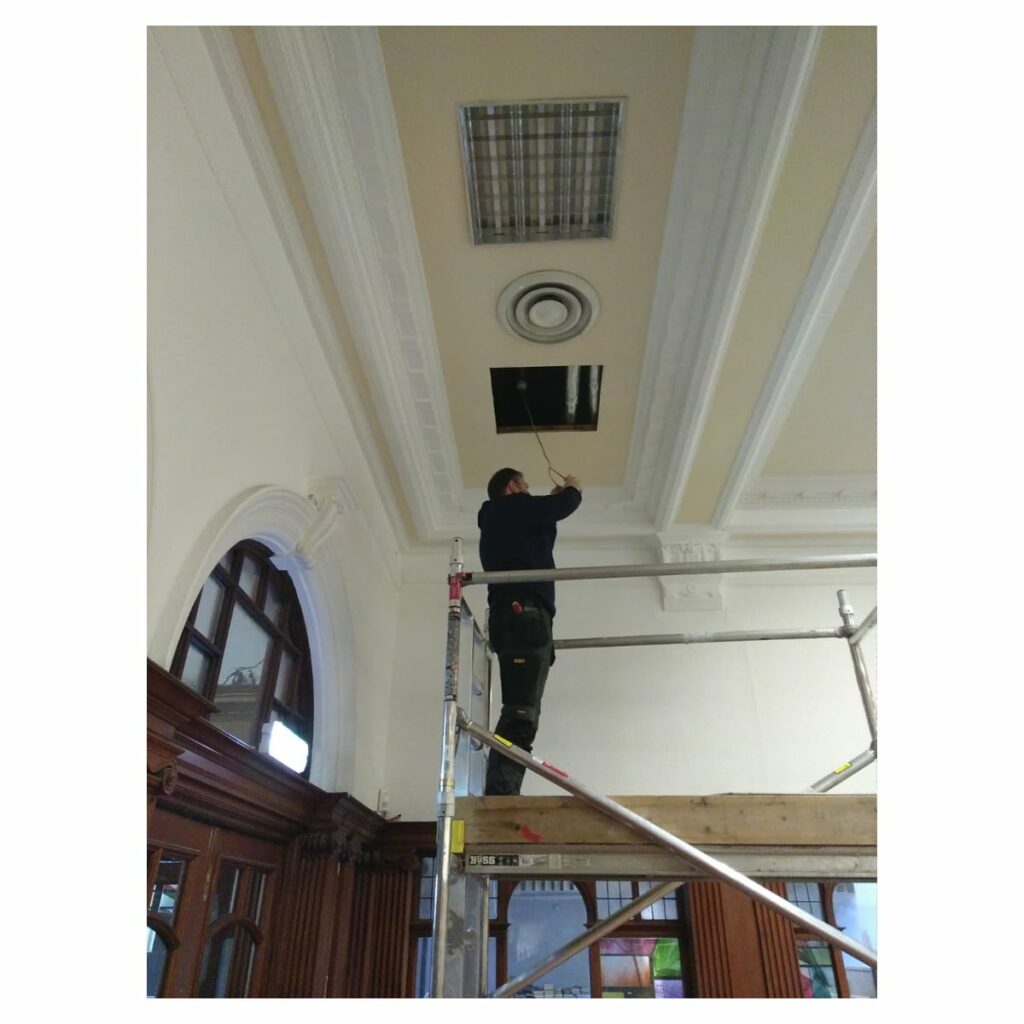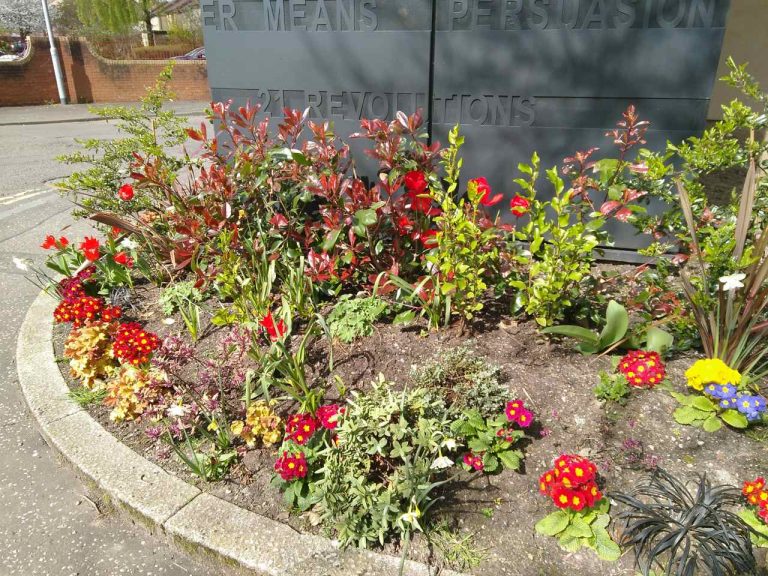Green Libraries Week x Climate Adaptation
Category: #CILIPSGoGreen, Blog

by Kirsten MacQuarrie, CILIPS Sector Development Manager and Green Libraries Network Moderator
Keen green colleagues may recall that this year’s Green Libraries Scotland Action Plan included the pledge to ‘grow… climate adaptation for local communities with libraries as centres for climate literacy’. But what does climate adaptation mean? Doesn’t it risk a defeatist attitude, accepting that climate change is here to stay? And above all, how can libraries help? This Green Libraries Week, let’s gather to grow our knowledge of adaptation and the difference that library-led environmental action can make to individuals and communities of all types and locations across Scotland.
About Adaptation
I’ll confess that when I first heard the term ‘adaptation’ in reference to climate change, I was wary. Don’t give up! I wanted to say (or more truthfully, shout). We must continue to fight the climate crisis! Fortunately, as I continued my research, I realised that climate adaptation is not anti-mitigation at all. As UN Climate Change puts it, adaptation:
Refers to changes in processes, practices and structures to moderate potential damages or to benefit from opportunities associated with climate change. In simple terms, countries and communities need to develop adaptation solutions and implement actions to respond to current and future climate change impacts.
‘Opportunities associated with climate change?’ I wondered nevertheless, still slightly suspicious. What sort of opportunities exist in a crisis of this magnitude, and what sort of person goes looking for them? I read on. According to Dr Janis Steele in Climate Adaptation: Accounts of Resilience, Self-Sufficiency and Systems Change:
Begin with the story of climate emergency and sinking islands in the Pacific, and you are starting ‘secondly’. Yet these are the stories that dominate media in an era of climate crisis. Drowning islands feature prominently, and Pacific Islanders too often appear as voiceless, hapless victims… the roots of the current crisis, located in the frameworks of modernity/coloniality, of invasion, predation and dislocation, are obscured.
In what can feel like a contentious and even fractious sphere of ‘debate’, experts increasingly agree that the climate crisis has not occurred in isolation. Rather, it is the consequence of, and all too often exacerbated by, historically-rooted power imbalances that disproportionately disadvantage women and girls, disabled people, and people living in the Global South. Therein lies the challenge. And, yes, the opportunity to do things differently in future.
Climate adaptation is not about surrendering to climate change or denying the urgency of acting against it. In fact, it is part of that urgent response by recognising that the effects of the climate crisis are already being felt, here and now, and we must therefore take every action we can to protect future generations. That means not simply reducing emissions today but creating a better, greener world where fewer emissions will be generated in the first place; not simply greenwashing the industries and corporations most complicit in climate change but restructuring the ways we live, work and spend so that social capital, in every sense, is more justly and thoughtfully distributed. Climate adaptation is about taking the opportunity to live differently. Think differently. Where better to start than your local library?
Adaptation from the ground up
A great example of how climate adaptation can be combined with mitigation measures is that of our Green Libraries friends, Glasgow Women’s Library, who also appear in Taking Root: our Green Libraries Week special double episode of the CILIPS podcast. GWL’s pioneering Net-Zero Handbook is rooted in efforts at ‘minimising waste, working towards maximum energy efficiency, re-using and recycling resources, [and] using Fair Trade and environmentally friendly supplies’, yet it also calls on readers ‘to look to the future and imagine a radically different world’. For GWL, the climate crisis compels us to change not just what energy and resources we consume but why. Our collective response need not – should not – be limited to devising ways to maintain the status quo. Things can be better. Fairer. Freer. And what’s already free and fair in society? The library!
Nor is adaptation always or exclusively conceptual. As the Adaptation Scotland website demonstrates, it is vital to invest in practical steps towards community preparedness and resilience as the climate crisis takes effect. That includes infrastructural changes like flood defences, improved drainage and transport networks, better building design and supporting local, seasonal produce. Whether coastal, rural or inner city, adaptation works best when it is bespoke to every library community.
A routemap to adaptation
One helpful tool for reflecting on how best to support your own patrons with understanding and implementing climate adaptation is the Community Climate Adaptation Routemap. How can they regenerate green spaces around them? How can housing be improved? What skills do people of all ages need to enhance their employability along with their ecological literacy? By taking stock of what community capabilities already exist and what your collective priorities are for the future, the routemap guides readers to consider the actions that will best address key local concerns. Why not make it available on your library service website or download a printable poster version for your Green Libraries Week display?
Library professionals are uniquely placed to inspire their patrons to take evidence-based environmental action, and adaptation is a vital tool to do just that. If your library community is advancing its adaptation know-how, we want to hear about it: please email us at admin@cilips.org.uk, submit a short case study or simply tag us on Instagram or LinkedIn using #GreenLibrariesWeek. Go for it, Green Libraries champions!



